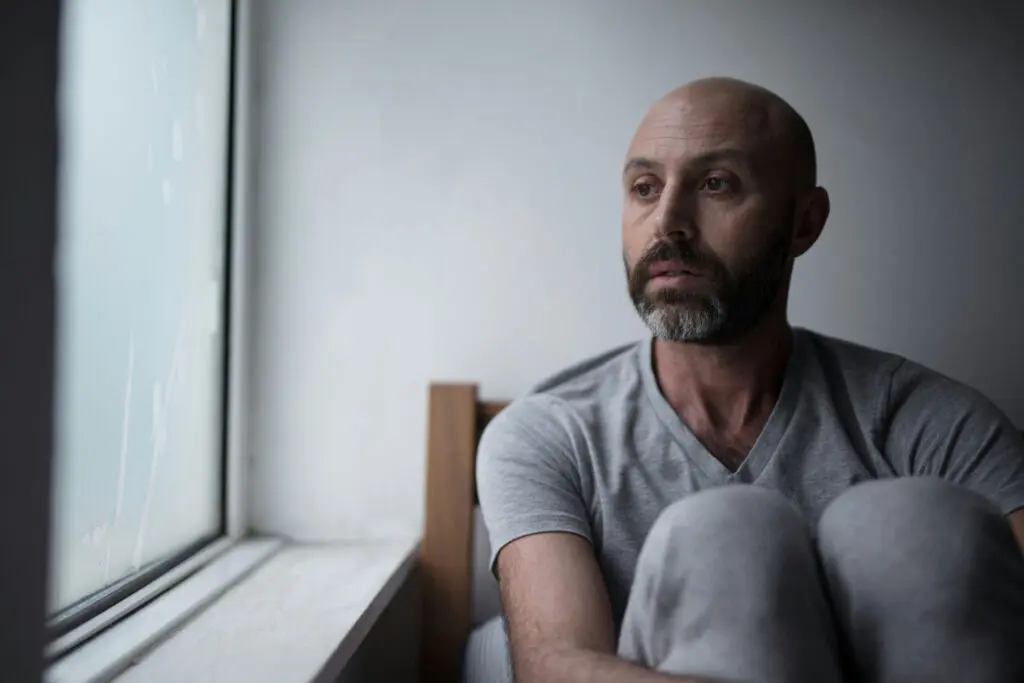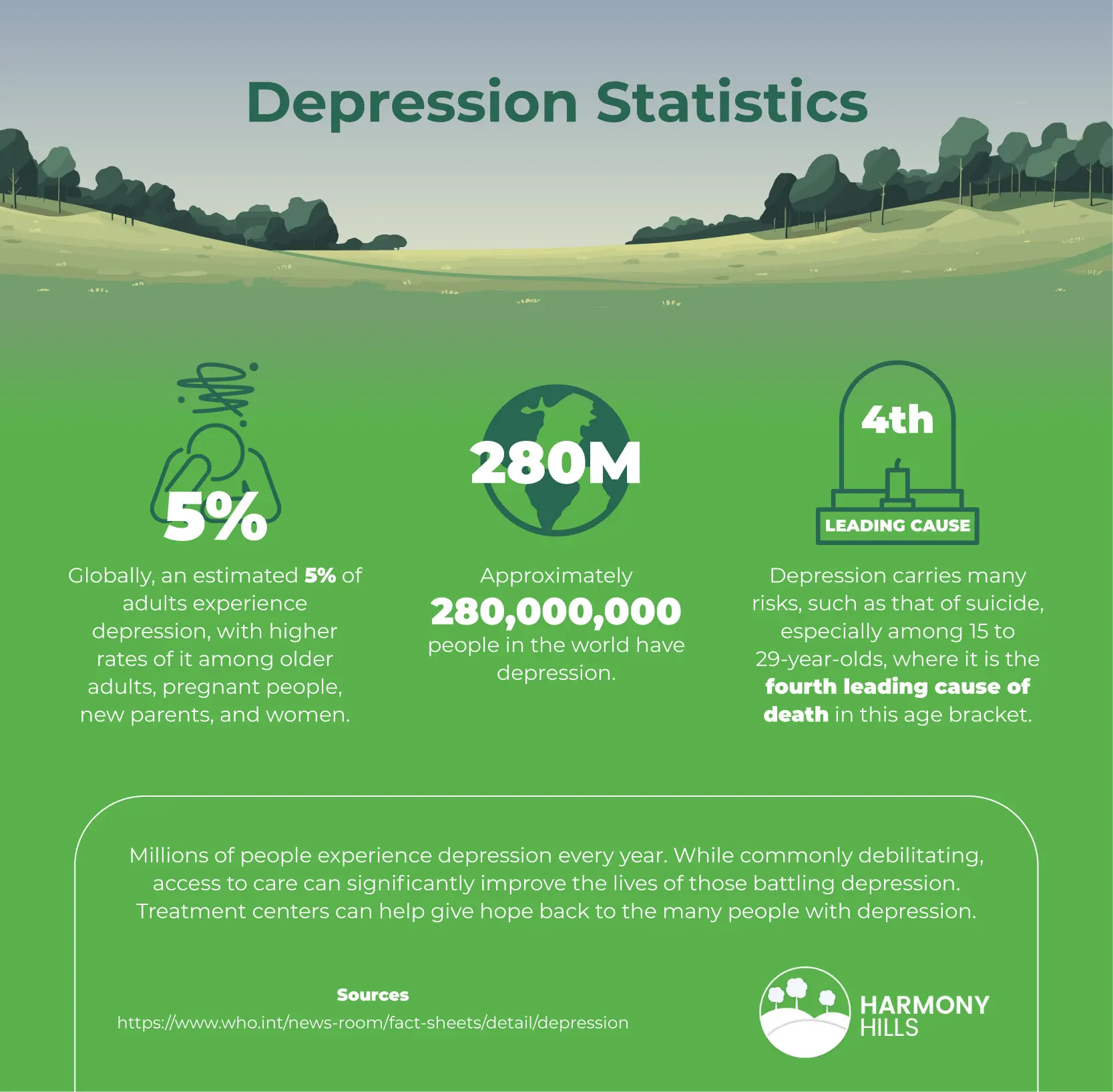
Healing from Depression Starts Here
Depression is one of the most common—and most challenging—mental health conditions. It goes far beyond occasional sadness, often leaving people feeling hopeless, disconnected, and unable to fully engage in daily life. Many people with depression experience intense feelings of hopelessness, worthlessness, and despair. Individuals may suffer emotionally, and this suffering can impact their daily lives and relationships. When symptoms become overwhelming, depression can affect relationships, work, and physical health, making it difficult to see a path forward.
Professional inpatient care offers the structure, safety, and comprehensive support that many individuals need to begin healing. At Harmony Hills, we provide evidence-based therapies and a compassionate environment designed to help you regain balance, rebuild relationships, and rediscover a sense of purpose. Our center offers a safe space and supportive environment where clients can openly explore their experiences and begin the healing process.






